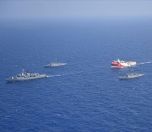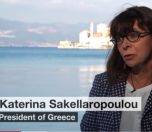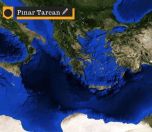* Photo: Anadolu Agency (AA)
Click to read the article in Turkish
President of the European Commission Ursula von der Leyen, also the former Defense Minister of Germany, spoke in the annual State of the Union Address at the European Parliament Plenary today (September 16).
Addressing the recently escalating tensions in the Eastern Mediterranean, especially between Turkey and Greece, a European Union (EU) member state, von der Leyen warned Turkey in following words:
'Our member states can always count on us'
"Turkey is and will always be an important neighbour. But while we are close together on the map, the distance between us appears to be growing.
"Yes, Turkey is in a troubled neighbourhood. And yes, it is hosting millions of refugees, for which we support them with considerable funding. But none of this is justification for attempts to intimidate its neighbours.
"Our Member States, Cyprus and Greece, can always count on Europe's full solidarity on protecting their legitimate sovereignty rights.
"De-escalation in the Eastern Mediterranean is in our mutual interest. The return of exploratory vessels to Turkish ports in the past few days is a positive step in this direction. This is necessary to create the much needed space for dialogue.
"Refraining from unilateral actions and resuming talks in genuine good faith is the only path forward. The only path to stability and lasting solutions..."
CLICK - Escalating tensions in the Eastern Mediterranean
New Pact on Migration by the EU
Calling on all members states to step up their efforts for migrants and refugees, von der Leyen briefly said:
"Migration has always been a fact for Europe – and it will always be. Throughout centuries, it has defined our societies, enriched our cultures and shaped many of our lives. And this will always be the case.
"As we all know, the 2015 migration crisis caused many deep divisions between Member States – with some of those scars still healing today.
"A lot has been done since. But a lot is still missing.
"If we are all ready to make compromises – without compromising on our principles – we can find that solution.
"Next week, Commission will put forward its New Pact on Migration. We will take a human and humane approach. Saving lives at sea is not optional.
"And those countries who fulfil their legal and moral duties or are more exposed than others, must be able to rely on the solidarity of our whole EU.
"The images of the Moria camp are a painful reminder of the need for Europe to come together. Everybody has to step up here and take responsibility – and the Commission will do just that.
"The Commission is now working on a plan for a joint pilot with the Greek authorities for a new camp on Lesvos. We can assist with asylum and return processes and significantly improve the conditions for the refugees. But I want to be clear: if we step up, then I expect all Member States to step up too. Migration is a European challenge and all of Europe must do its part."
Timeline of the Eastern Mediterranean crisisThe tension between Turkey and Greece over their right to explore energy resources in the Eastern Mediterranean has seriously escalated over the last months. The latest developments leading to this escalation are briefly as follows: On July 21, Turkey issued its first Navtex alert for Oruç Reis seismic vessel's exploration activities in the Eastern Mediterranean. On July 28, Turkey announced after Germany's diplomatic efforts that it suspended hydrocarbon exploration activities and stated that it was ready to talk with Greece. On August 6, Greece and Egypt signed a maritime border agreement. On August 10, Turkey announced that its drillship Oruç Reis would resume energy exploration in the Eastern Mediterranean. It said the ship will continue its work along with the ships Cengiz Han and Ataman until August 23. On August 14, the EU foreign miniters discussed the crisis at an extraordinary meeting, calling on Turkey to end hydrocarbon exploration activities in contested waters. On August 16, Turkey issued a Navtex, announcing that its drill ship Yavuz will continue its work exploring for energy resources off the island of Cyprus. On August 23, Turkey issued another Navtex, stating that the Oruç Reis vessel would continue its activities until August 27. On August 24, Greece held joint naval drills with the US in the south of Crete island. One day later, Turkey conducted naval exercises with Italy. On August 25, Germany's Minister of Foreign Affairs Heiko Maas visited Athens and Ankara to encourage the two countires to have direct talks. On the same day, Turkey held replenishment exercises with Italy in the Eastern Mediterranean. On August 26, US President Donald Trump had phone talks with President Recep Tayyip Erdoğan and Prime Minister of Greece Kyriakos Mitsotakis, urging them to reduce tensions and start dialogue. On the same day, Turkey and the US conducted joint maritime exercises. On August 27 and 28, EU foreign ministers met with the Eastern Mediterranean crisis on the top of their agenda. The Union's foreign polict head Josep Borrell said after the meeting that Turkey's ships might be sanctioned if they continued hydrocarbon activities. Turkey's Ministry of National Defense on August 28 announced that it intercepted six F-16 fighters planes of Greece, which it said were closing in on the area where Turkey issued a Navtex. On September 1, the US lifted the arms embargo on Southern Cyprus. On September 2, Turkey issued two Navtex alerts for Russia's gunnery exercises in the Eastern Mediterranean. It was stated that Russia would conduct exercises in two different areas that correspond to Turkey's hydrocarbon exploration activities on the east and west of the Cyprus island. On September 3, NATO Secretary General Jens Stoltenberg said, "Following my discussions with Greek and Turkish leaders, the two Allies have agreed to enter into technical talks at NATO to establish mechanisms for military deconfliction to reduce the risk of incidents and accidents." On September 4, Prime Minister of Greece Kyriakos Mitsotakis said that Greece would only enter into a dialogue with Turkey if it "stops provocations" in the Eastern Mediterranean. Shortly before this statement, Turkey's Foreign Ministry stated, "Turkey is ready to enter into dialogue with Greece without any preconditions, in order to find lasting, fair and equitable solutions to all outstanding issues between Turkey and Greece." On September 8, the state-run Anadolu Agency (AA) reported that the meeting between military delegations from Turkey and Greece was rescheduled for September 10. On September 10, military delegations from Turkey and Greece had technical talks at NATO headquarters to prevent military engagement. On Septemebr 15, issuing a new NAVTEX alert for the Chios Island of Greece, Turkey argued that Greece had militarized Chios Island in violation of the 1923 Lausanne Peace Treaty. |
(PT/SD)




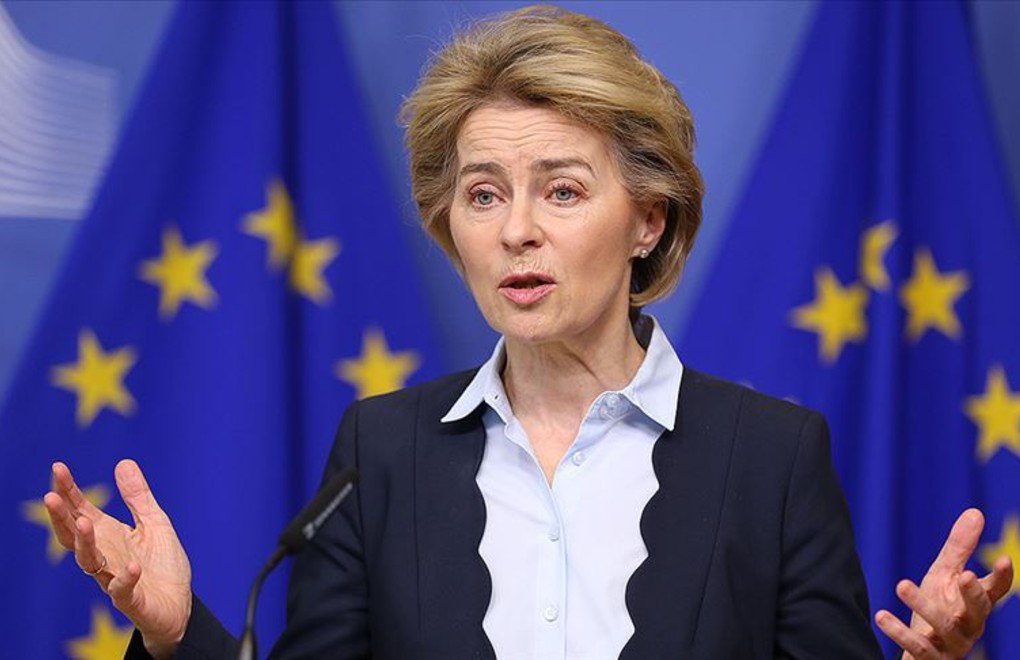



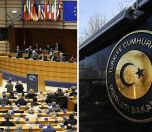
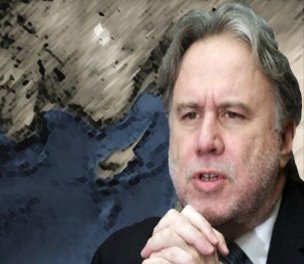
-132.jpg)
